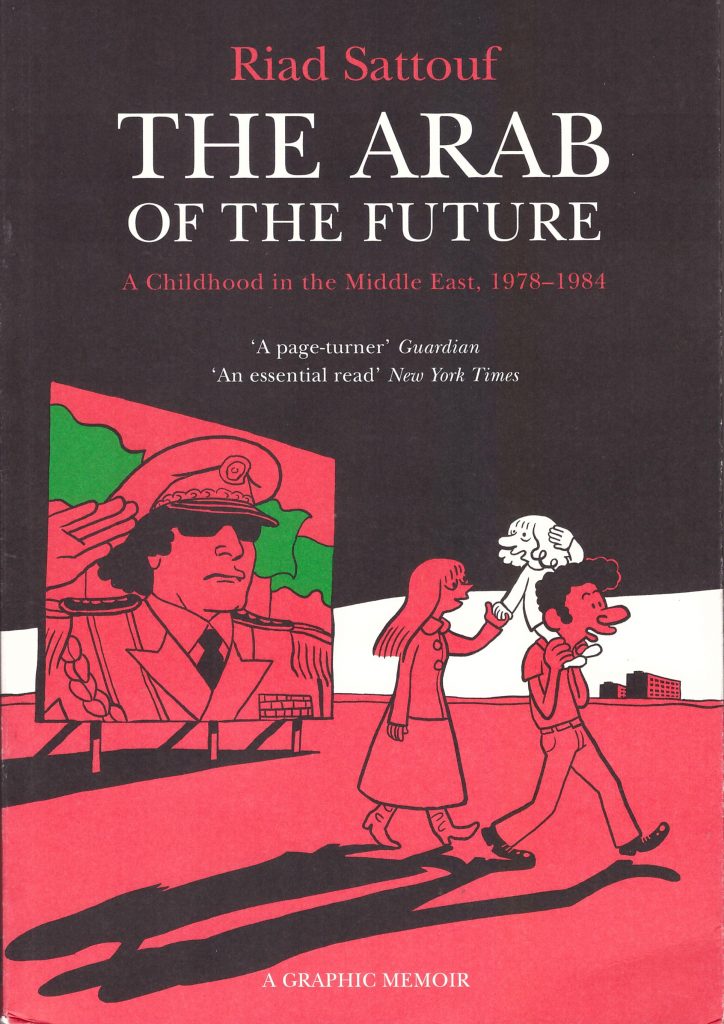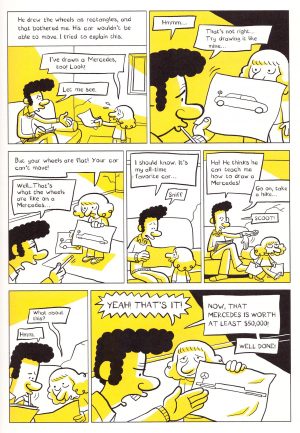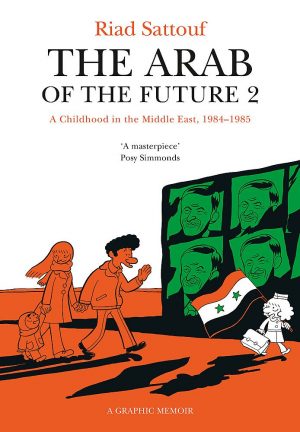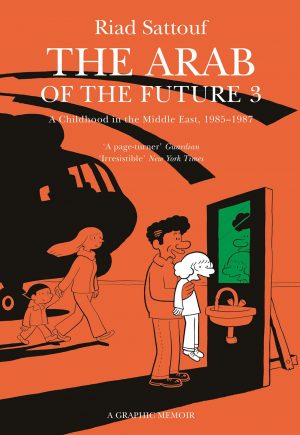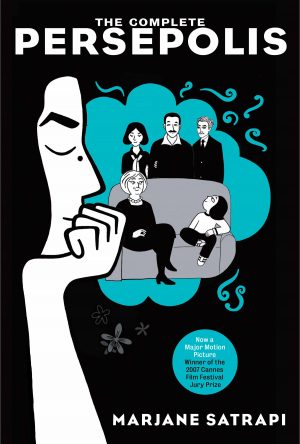Review by Frank Plowright
In what’s a trilogy so far, The Arab of the Future is Riad Sattouf’s recollections of his pre-teen years spent in France, Libya and Syria. Taken at face value, one of many aspects to admire is the sheer retentive quality of Sattouf’s memories, which are presented as first hand. It’s not just that numerous incidents from his pre-school years are recalled, but Sattouf can also associate how he felt at the time. Most young children are extremely accepting and don’t question experiences others would see as strange or unsettling, but Sattouf can relate dozens of them down to small observations. Having your grandmother lick your eyeball is an incident capable of scarring a child for life, but Sattouf can also remember how the woman across the street hung washing in the rain and picked up her baby.
Sattouf’s French mother Clementine met Abdul-Razak Sattouf when studying at university. Sattouf senior dominates this book, depicted as fervent but unfocused, with an utterly eccentric worldview based on idealism rather than actuality. He’s a university professor, yet riddled with superstition and capable of quixotic decisions. Offered a teaching post in Oxford, he’s offended at his name being spelled incorrectly in the offer, and instead moves the family from France to Libya. Despite an almost immediate contradiction between expectation and their own experience, they remain until even Sattouf Snr can no longer deny reality. Relocation to his Syrian homeland follows a brief return to France, and almost all the remainder of this book and its sequel take place there. After seventeen years away, reality contradicts Abdul-Razak’s rose-tinted memories, yet an enormous capacity for self-delusion kicks in again, and he defends barbarism such as criminals left hanging in the streets.
A recollection of smells is a constant through Sattouf’s early years. He’s comforted by sweat, recalls trying all sorts of food for the first time, notes how some rivers smelt of shit, and how kebab stalls in Homs were rancid. Other experiences are explained in hindsight. His father experienced respect from strangers due to being married to a European women. People automatically considered he must be associated with the dictatorial regime for that to be the case.
Sattouf’s cartooning is simple for purposes of clarity, yet absorbing, and rich in detail and character. While understanding other ways of living, Sattouf’s observations are matter of fact, and almost always non-judgemental. When a note of censure emerges it’s with regard to individual behaviour, not a general custom, and it applies equally to Sattouf’s unpleasantly lecherous French grandfather as to his peculiar Syrian uncle.
While an astonishing book packed with often uproariously funny anecdotes, there’s a slight problem with the way the family is presented. This opening volume is a listing of Abdul-Razak’s failings, yet Clementine is reduced to a background presence, occasionally erupting from saintly patience at her husband’s ridiculous notions when the infant Riad’s welfare is at stake. Her marriage isn’t presented as loving, and she’s also educated to degree standard, so further explanation of why she endured such conditions and behaviour with other options available would have presented a more rounded character. It’s a question hanging over most of this opening volume. Perhaps The Arab of the Future 2 will provide an answer.
The title quotes Sattouf’s father, referring to his assertion that the Arab of the future must be educated. Abdul-Razak may sentimentalise, but it’s absent from Sattouf’s own hindsight presentation. This opening volume of The Arab of the Future, therefore, is unlikely to alter Western opinions of life in Libya or Syria, but it’s a remarkable and engrossing memoir.
